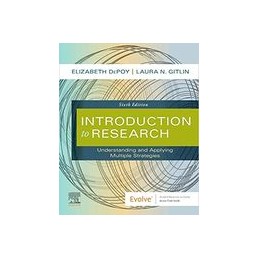- Obniżka


 Dostawa
Dostawa
Wybierz Paczkomat Inpost, Orlen Paczkę, DHL, DPD, Pocztę, email (dla ebooków). Kliknij po więcej
 Płatność
Płatność
Zapłać szybkim przelewem, kartą płatniczą lub za pobraniem. Kliknij po więcej szczegółów
 Zwroty
Zwroty
Jeżeli jesteś konsumentem możesz zwrócić towar w ciągu 14 dni*. Kliknij po więcej szczegółów
Learn the latest healthcare and human service research methods! Introduction to Research:: Understanding and Applying Multiple Strategies, 6th Edition helps bridge the gap between research and practice by giving you a solid foundation for critiquing your own work. This easy-to-read guide covers all the major research design strategies:: qualitative, quantitative, naturalistic, experimental-type, and mixed method. Plus, the 6th edition has been updated to include contemporary references, an expanded discussion of big data, updated research methods, and more!
Opis
Part I: Introduction
1. Research as an Important Way of Knowing
2. Essentials of Research
3. Research Ethics
Part II: Thinking Processes
4. Philosophical Foundations
5. Framing the Problem
6. Developing a Knowledge Base Through Literature and Resources
7. Theory in Research
8. Formulating Research Questions and Queries
9. Language and Thinking Processes
Part III: Design Approaches
10. Experimental-Type Designs
11. Naturalistic Designs
12. Mixed Method Designs
Part IV: Action Processes
13. Setting the Boundaries of a Study
14. Boundary Setting in Experimental-Type Designs
15. Boundary Setting in Naturalistic Designs
16. Collecting Information
17. Collecting Data Through Measurement in Experimental-Type Research
18. Gathering Information in Naturalistic Inquiry
19. Preparing and Organizing Data
20. Statistical Analysis for Experimental-Type Designs
21. Analysis in Naturalistic Inquiry
22. Sharing Research Knowledge Before the Study
23. Sharing Research Knowledge During and After the Study
Part V: Improving Practice Through Inquiry
24. Reciprocal Role of Research and Practice
25. Stories from the Field
Glossary
